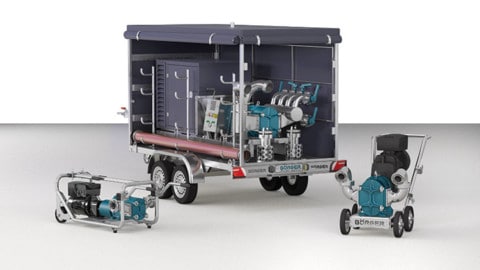The Labor Governments are investing millions into helping deliver essential services such as access to clean drinking water and reliable power to remote communities, including upgrades to bores and a rising main replacement.
A $17.5 million investment made by the Federal Government, with $9.1 million from the Northern Territory will see two critical projects built in two remote communities across the territory whilst $92.8 million is invested in communities around Uluru.
In the Northern Territory, the community of Yuendemu is set to receive $15.3 million in funding invested into constructing three critical projects in the Central Desert community. The project includes a water service line replacement, equipping of two existing bores and a rising main replacement which will prevent leakage and provide increased water transfer capacity that can support new housing development.
The other essential construction project located in the Northern Territory will be in Milingimbi. $11.4 million will be invested into providing improved access and reliability of water supply to the East Arnhem Land across three locations.
The projects including upgraded and new bores which will improve Milingimbi’s supply, unlock the opportunity for new housing development to reduce overcrowding and enable community development.
Federal Minister for the Environment and Water, Tanya Plibersek, said that essential services such as clean water is something that most people take for granted.
“In a country like Australia, here are things that most of us take for granted. Like when we turn the tap on at home, safe drinking water will come out.
“But for more than 25,000 people in remote Australia, that isn’t the case. These Australians live in places without access to water that meets basic guidelines. And another 600,000 people live in places without access to water that meets recognised standards – relying on water that’s murky, or contains unsafe levels of minerals, heavy metals and chemicals,” said Ms Plibersek.
“This level of deprivation is unacceptable. It makes Australians sick and it holds them back in life. Our government is committed to changing this.
“I am thrilled to announce funding towards the first two projects funded through a $150 million fund to invest in critical water infrastructure projects in First Nations remote communities.
“There is still a lot of work to be done to Close the Gap on water security, and we cannot do it alone. That’s why our government is working closely with our state and territory partners and First Nations organisations and representatives across the nation to identify, plan and deliver water security projects,” Ms Plibersek said.
Construction of the two projects will commence in Northern Territories dry season of this year, with the Labor Government investing $150 million in similar projects around Australia.
Another million dollar investment is also being provided by the Labor Government, investing $92.8 million into delivering essential services of reliable power, water and sewerage to a community located at the footy of Uluru.
The individuals of Mutitjulu, currently endure an inadequate, unreliable and unsafe power grid, inadequate drinking water supplies and have a sewerage system that is over capacity and regularly discharges raw sewage near the aged care home and clinic.
The finding will support multiple construction jobs both in and surrounding Mutitjulu over the course of three years and help pave the way for future economic development. The funding and construction will not only benefit the Mutitjulu community, but also those nearby.
“We quite rightly want to showcase Uluṟu-Kata Tjuṯa to the world, we can’t allow the Traditional Owners of these precious places to live in conditions the world would be shocked to see,” Ms Plbersek said.
“The Albanese Labor Government is stepping in and investing over $90 million to make sure the Mutitjulu community have these basic services.”
The government will continuously invest $700,000 per year as ongoing funding to ensure that Mutitjulu continues to have access to clean water, working sewerage systems and running electricity as well as a further $8 million invested to replace the Health Service Clinic with a new facility.

















